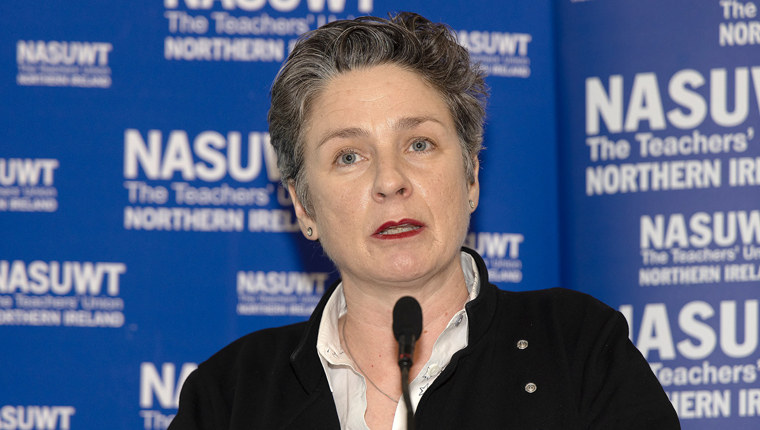
The teacher welfare charity Education Support has published its Teacher Wellbeing Index 2024 which identifies a rise in verbal and physical abuse from pupils, pressure from parents and a lack of support from external services as among the key drivers of teacher stress and burnout. We have responded to the report with our calls for change.
Sinead McBrearty, CEO of Education Support, talks more about this year's findings, how things can get better for the profession and how the charity can help teachers who are struggling.
What new insights does the 2024 Teacher Wellbeing Index bring compared to previous years?
Since 2017, the Teacher Wellbeing Index has highlighted consistent themes, but this year's report brings critical new insights on the impact of parent and pupil behaviour and the lack of support from wider public services.
Teachers and education staff report that challenging behaviours from both students and parents are taking a serious toll on their morale and wellbeing. These behaviours are perceived as being rooted in systemic issues related to pupils’ unmet emotional, social and mental health needs. This data provides essential context for shaping policies designed to address these challenges and improve workforce retention
What does the report say about the connection between behaviour, public services and staff wellbeing?
This year’s survey explored how well education staff feel they are supported by wider public services. We don’t claim a causal link, but there is a clear relationship between educators’ perception of the support they receive from other agencies (CAHMS, children’s services, etc.) and their job satisfaction and overall wellbeing.
If children aren’t receiving the support they need from broader public services, it places immense pressure on our schools. We hear that too many talented educators feel that they can’t make a difference. And for a purpose-driven professional, it’s a short hop from here to a rational decision to find an alternative job where you feel you can have an impact – or at the very least feel demoralised less frequently.
It’s encouraging to see some positive trends in this year’s Teacher Wellbeing Index on workplace culture. What do these small improvements signify for the education sector?
While it’s important not to get carried away, these small, but significant improvements offer a glimmer of hope. They could indicate the beginning of a positive trend, but we need more data over the next few years to confirm this. Ultimately, sustaining these changes is crucial for improving staff wellbeing and retention, which ultimately impacts the quality of education we provide.
The report highlights the urgent need for a policy response to improve staff wellbeing. What specific actions are necessary?
We need decisive actions from the government, including increased funding and support for education staff. This includes funding for essential services like mental health support, provisions for special educational needs, and addressing child poverty. We also have to address workload to improve the experience of education staff if we are to address workforce retention. But it’s not just investment, we need fresh thinking and new mental models.
The report highlights significant concerns regarding school leader wellbeing. What can be done to address this?
School leaders face immense pressure, and we must provide them with targeted support to manage their role effectively. Implementing reflective practices and professional supervision can help leaders navigate their challenges. Prioritising their wellbeing is critical for the overall health of educational institutions. One way we are supporting leaders is through professional supervision (school leaders in Wales can currently sign up for six sessions of professional supervision with us, at no cost).
Finally, what would you say to teachers and leaders who are struggling or feeling overwhelmed?
I want you to know that you are not alone. The challenges you face are recognised and we at Education Support understand and we are here for you. If you or a colleague are experiencing any of the challenges described in this blog, please reach out for support. The Education Support helpline is available 24/7, offering confidential emotional support from a qualified counsellor: 08000 562 561.





